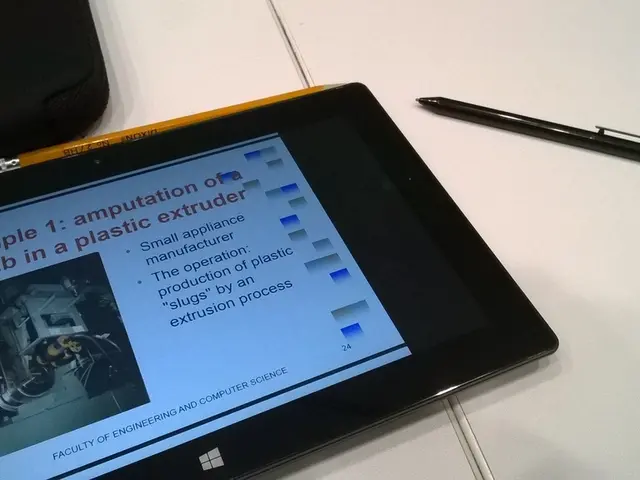Indi's less fortunate citizens demand a shift in their mental outlook
In Malaysia, a concerted effort is being made to uplift the underprivileged Indian community through various initiatives aimed at improving education, economic opportunities, and social welfare.
Education and Skills Development
Recognising the importance of education, targeted scholarships have been increased for Indian students, particularly in STEM and TVET (Technical and Vocational Education and Training) fields. This is being facilitated by agencies such as JPA, MARA, and Government-Linked Companies (GLCs). Additionally, efforts are being made to upgrade Tamil schools (SJKT) by enhancing digital tools, staffing, and facilities to improve the quality of education. After-school intervention programs are also being conducted in high-risk communities to reduce dropout rates and boost learning.
Economic Empowerment and Entrepreneurship
To support entrepreneurship, RM300 million has been allocated to Indian entrepreneurs via programs under TEKUN, SME Corp, and Bank Negara. The government is also promoting rural and semi-urban business hubs through the 'One District, One Indian Enterprise' program. Furthermore, efforts are being made to simplify onboarding for Indian-owned SMEs to participate in GLC contracts and projects.
Employment and Labour Mobility
To improve employment opportunities, ethnic-disaggregated employment data is being introduced in civil service and GLCs to monitor representation. Structured internship-to-employment programs are being established to facilitate employment of Indian graduates. Companies are also being encouraged to hire and develop human capital from the Indian community through Key Performance Indicators (KPIs).
Social Development and Welfare
To address social issues, housing quotas have been reserved for Indian families in government housing projects such as PPR and RUMAWIP. Expanded social protection programs are being implemented to reach B40 Indian households with Bantuan Keluarga Malaysia and MyKASIH cash aid and support. Health outreach programs are also being targeted at urban Indian settlements, focusing on screening, mental health, and addiction rehabilitation.
Addressing Critical Issues
The Malaysian Indian Development Agency (MIDA) has highlighted urgent concerns such as high dropout rates among low-income Indian students, which hinder socio-economic advancement. Calls for urgent structural reforms and more innovative, targeted policies have been made to break these cycles of poverty and exclusion.
Political Advocacy
The Malaysian Indian Congress (MIC) has proposed an 8-point agenda for the 13th Malaysia Plan, emphasising improved university admissions, preschool education, women’s empowerment, economic opportunities, and tailored community programs to tackle social challenges.
While these initiatives reflect a government and community response aimed at improving educational access, economic opportunities, and social welfare to uplift the underprivileged Indian community in Malaysia, significant challenges remain, such as high school dropout rates and systemic exclusion. These issues underscore the need for sustained, innovative, and well-targeted efforts.
Parents play a crucial role in this journey. It is essential to counsel them to make them aware that poverty is not a barrier to education. Many Indian children who have graduated from national schools have achieved success in life while retaining their identity. However, many Indian children drop out of school before completing five years of secondary education.
Social leaders can play a vital role in identifying children affected by poverty and seeking government help. National schools and Chinese schools, which are generally more well-equipped with infrastructure and teaching facilities than many Tamil schools in the country, can provide these children with a better chance at success.
The underprivileged Indians in India can also benefit from similar initiatives. More volunteers and social workers from their own community are needed to address their needs. Government agencies and schemes like Tekun Nasional and TVET can empower Indian entrepreneurs and provide access to loans and training.
Foreign laborers from some poor countries in India are thriving despite hard work. This serves as a reminder that with the right support, the underprivileged Indians in Malaysia can also achieve success. It is now up to the community to choose to value education, adopt a meaningful lifestyle, and strive for a better future.
[1] Malaysian Indian Transformation Unit (Mitra) - [https://www.mitra.gov.my/] [2] Malaysian Indian Congress (MIC) - [https://mic.org.my/] [3] Malaysian Indian Development Agency (MIDA) - [https://www.mida.gov.my/] [4] Ministry of Entrepreneur Development and Cooperatives (Kuskop) - [https://www.kuskop.gov.my/]
- The Malaysian Indian Transformation Unit (Mitra) is fostering infrastructural improvements in Tamil schools to enhance digital tools, staffing, and facilities, aiming to improve the quality of education for the underprivileged Indian community.
- Recognizing the potential of Indian entrepreneurs, the government of Malaysia has allocated RM300 million to support their businesses through programs like TEKUN, SME Corp, and Bank Negara, with the intention of promoting economic empowerment and entrepreneurship.
- The Malaysian Indian Congress (MIC) suggests an 8-point agenda for the 13th Malaysia Plan, which emphasizes education reform, emphasizing university admissions, preschool education, and women’s empowerment, as well as tailored community programs to combat social challenges and uplift the underprivileged Indian community.




